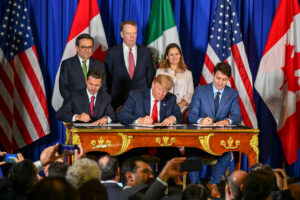With only two military-run gun stores in the country, Mexicans face significant hurdles in legally obtaining firearms, highlighting the ongoing struggle between legal ownership and black market prevalence.
A Look Inside Mexico's Unique Gun Retail Landscape

A Look Inside Mexico's Unique Gun Retail Landscape
Exploring the extraordinary journey of gun buyers in Mexico's tightly controlled legal firearms market.
In Mexico, owning a firearm carries a complicated set of regulations, evidenced by the extraordinary journey many must undertake to access legal gun purchases. Eduardo Ignacio García Zavala, for instance, went through a tedious three-month approval process before embarking on a lengthy overnight drive to Mexico City to buy a precision rifle.
This scenario is not unique; customers travel from across the country to visit one of the two legal gun stores operated by the military. These shops serve as critical access points, reflecting the nation's tumultuous relationship with firearms, as the Constitution permits ownership but places stringent controls on purchases to combat widespread illegal arms trafficking.
There is a curious mix of clientele: private security personnel, competitive shooters, and other citizens make arduous trips for access to firearms. Visitors are met with a bureaucratic process resembling that of a D.M.V. More than ten documents are required just to enter, and waiting periods can stretch out for months.
Take Cristian Ulices Ocaranza Marquez for example, a police officer from Colima, a state plagued by high homicide rates. He and six colleagues rented a van and traveled eight hours to secure handguns after complying with a lengthy approval process, which cost him $518—more than the average monthly salary in Mexico, indicating the high stakes involved in legally arming oneself in a nation rife with firearm violence.
This scenario underscores a larger narrative about Mexico's ongoing conflict regarding gun ownership, as many navigate the difficult terrain of legal rights amidst a dangerous black market.




















